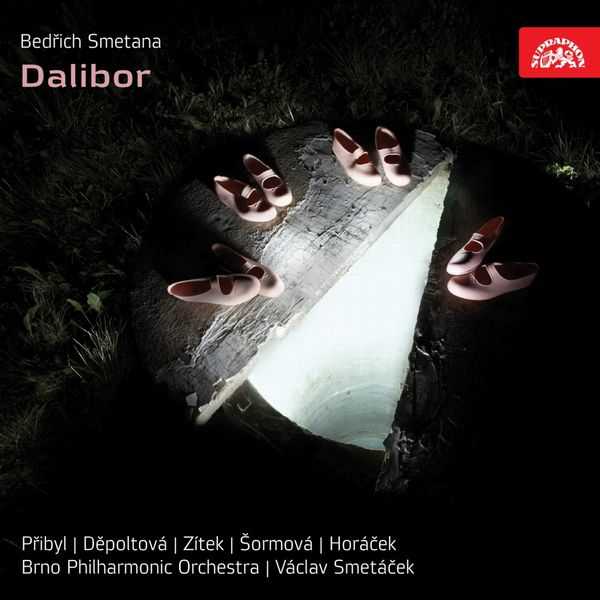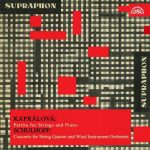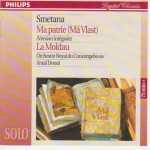
Composer: Bedřich Smetana
Performer: Naďa Šormová, Václav Zítek, Eva Děpoltová, Jaroslav Horáček, Vilém Přibyl, Karel Hanuš, Miloš Ježil, Bohuslav Maršík, Brno Janáček Opera Chorus
Orchestra: Brno Philharmonic Orchestra
Conductor: Václav Smetácek, Josef Pančík
Format: FLAC (tracks)
Label: Supraphon
Catalogue: SU40912
Release: 2012
Size: 695 MB
Recovery: +3%
Scan: cover
Dalibor
Act I
01. Today the Judgement Will Be Passed
02. An Orphan, Abandonned
03. March
04. You Know by Now How Our Kingdom Fair
05. Step Forward Without Fear
06. The Sun Did Set
07. Ah, What a Sight!
08. I Won´t Deny, Lies Are Not My Province
09 .Committing Crime Thou Hast Thus Helped Thyself!
10. Thus, Dalibor, Reads Judgement Unanimous
11. Here Do You See Me Bending Low
12. What Storm Here in My Bosom Is Raging
Act II
13. Oh, Yes, the Gayest Is This Our World
14. By This Gay Song
15. Of Dalibor´s Fate Didst Thou Surely Hear?
16. Oh, Yes, the Gayest Is This Our World
17. Here Greatest Vigilance Is Needed
18. Oh, How Saddening Is a Jailer´s Life, How Hard
19. Everything Is Ready
20. Oh, Goodness!
21. Here Is the Violin
22. Listesso tempo
23. It Was He Again?
24. Accept, I Beg, This Trifle from My Hand!
25. Dalibor, I Beg Your Pardon
26. Oh, Unspeakable Charm of Love!
Act III
27. Glourious King!
28. It Will Be Near to Forty Years
29. At This Late Hour
30. Are You Ready?
31. It´s the Third Night
32. Oh, Heaven! He Shook His Chains!
33. Let So It Be!
34. A la marcia
35. No Trace as Yet of Our Covened Signal?
36. Milada! – Where am I?
37. Oh, Behold This Tender Rosebud
38. Enemy Troops Are Beaten
Bedřich Smetana’s opera Dalibor resembles a heroic canvas with miniature paintings of emotional turmoil in men’s hearts. The story which drew on the historical reports from 1497—1498 enabled the librettist Josef Wenzig to develop potent situations, some of which had already proven effective. Nevertheless, the composer chose another approach. The musical interpretation of the story, the characters and mainly their inner life was so autonomous and convincing that it made his final work timeless. He transformed the medieval subject matter of love at first sight into a hymn about defiance and freedom. He equipped the opera with well-arranged leitmotifs and made his characters musically vivid far beyond what the text had offered.
The rebellious haughtiness of the main hero was softened by emotional fervour whereas the main heroine’s grievance was balanced by repentance. Moreover, the ruler who is supposed to punish crime reveals his sensible nature and the minor folk characters gain human dimension in the opera. Through the detailed composition and the ever-repeating omen of tragic end the work achieved its constant inner suspense. Arias, ariosa, duets, choirs as well as interludes are brought together in a vast scene which supports the arch of grand musical architecture, the shape of which is not similar to others. Smetana’s Dalibor is well ahead of time due to its musical and dramatic properties. In addition, the demands for recitation make it progressive as well. The challenging voice parts of the main characters ranging from lyrical fineness to the dramatic vintage performance along with the emphasis on the powerful interpretation did not have their counterpart in the Czech opera until the time of Dalibor’s premiere in 1868.



